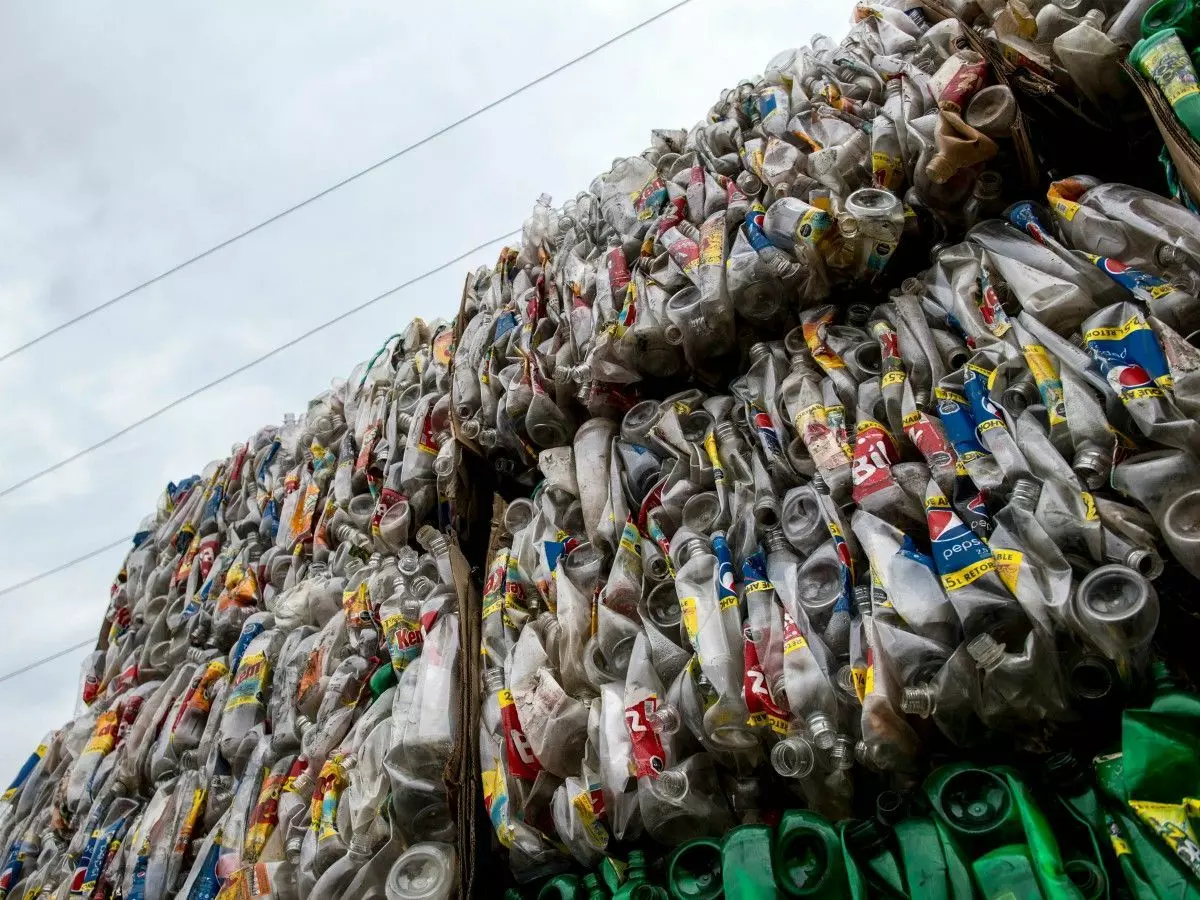Government Plugs Loophole That Allowed Recyclers To Import Plastic Scrap To India For Processing, Imposes A Total Ban
Despite India being one of the biggest plastic waste generators and nearly 40 percent of it is not collected or recycled the country had been one of leaders when it came to importing recyclable scrap from elsewhere. Data compiled by NGO Pandit Deendayal Upadhyay Smriti ManchPDUSM showed that between April 2018 to February 2019 Indian companies had imported 99545MT of plastic flakes and 21801MT plastic lumps.

It is quite ironic that despite India being one of the biggest plastic waste generators and nearly 40 percent of it is not collected or recycled, the country had been one of the leaders when it came to importing recyclable scrap from elsewhere.
Plastic recyclers in India had been importing plastic scrap for recycling, despite an official ban, by taking advantage of the loopholes in the law.

AFP/ REPRESENTATIONAL IMAGE
According to those working in the sector Indian recyclers and textile industry were unethically importing plastic waste in the form of flakes and lumps since it was cheaper compared to collecting locally produced plastic waste for recycling.
Data compiled by NGO Pandit Deendayal Upadhyay Smriti Manch(PDUSM) showed that between April 2018 to February 2019 Indian companies had imported 99,545MT of plastic flakes and 21,801MT plastic lumps from countries like Pakistan, Bangladesh, Republic of Korea, USA, among others, between April'18 to February'19. Out of which, 55,000+ tonnes are imported from Pakistan and Bangladesh combined.

AFP/ REPRESENTATIONAL IMAGE
"The Indian companies were exploiting a loophole to import the raw material (plastic waste) for manufacturing various recycled products from PET bottles waste. They earn crores every year by manufacturing more than 100 products like polyester carpet, T-shirts, athletic shoes, luggage, industrial strapping; automotive parts, such as luggage racks, fuse boxes, bumpers, and door panels, etc. via recycling PET bottles. Although we are not against these industries earning profits, we want them to collect and use the locally produced plastic (PET) waste in the manufacturing, so their businesses help our country in becoming plastic waste-free,¡± Vinod Shukla, President, Pandit Deendayal Upadhyay Smriti Manch said.
The NGO had recently submitted their findings to the Ministry of Environment, Forest and Climate Change.
On October 3, the ministry issued a notification saying that imports of all types of plastic scraps are prohibited under existing rules.

AFP/ REPRESENTATIONAL IMAGE
Reacting to the ministry order, Shukla said, "We applaud this decision of the ministry in safeguarding our environment. The collection, segregation, and recycling of plastic waste need a large number of manpower, which will also help in generating lakhs of new job opportunities across India in the waste management and recycling industry¡±.
Anand Mani, General Secretary, Pandit Deendayal Upadhyay Smriti Manch said that the ban will force the recyclers to buy the scrap from ragpickers, who will eventually benefit from it.

AFP/ REPRESENTATIONAL IMAGE
"The rag pickers are the unsung heroes of the Indian waste collection and recycling story, without them our nation's waste problem would have been much worse. Ragpickers sustain themselves by collecting, sorting, segregating waste and then trading it to the scrap dealer and recyclers. Post the import ban, we need to establish an ecosystem to segregate waste at source by making ragpickers, recyclers and waste processors an integral part of waste collection and management ecosystem, working closely with the local municipal bodies¡±, he said.
